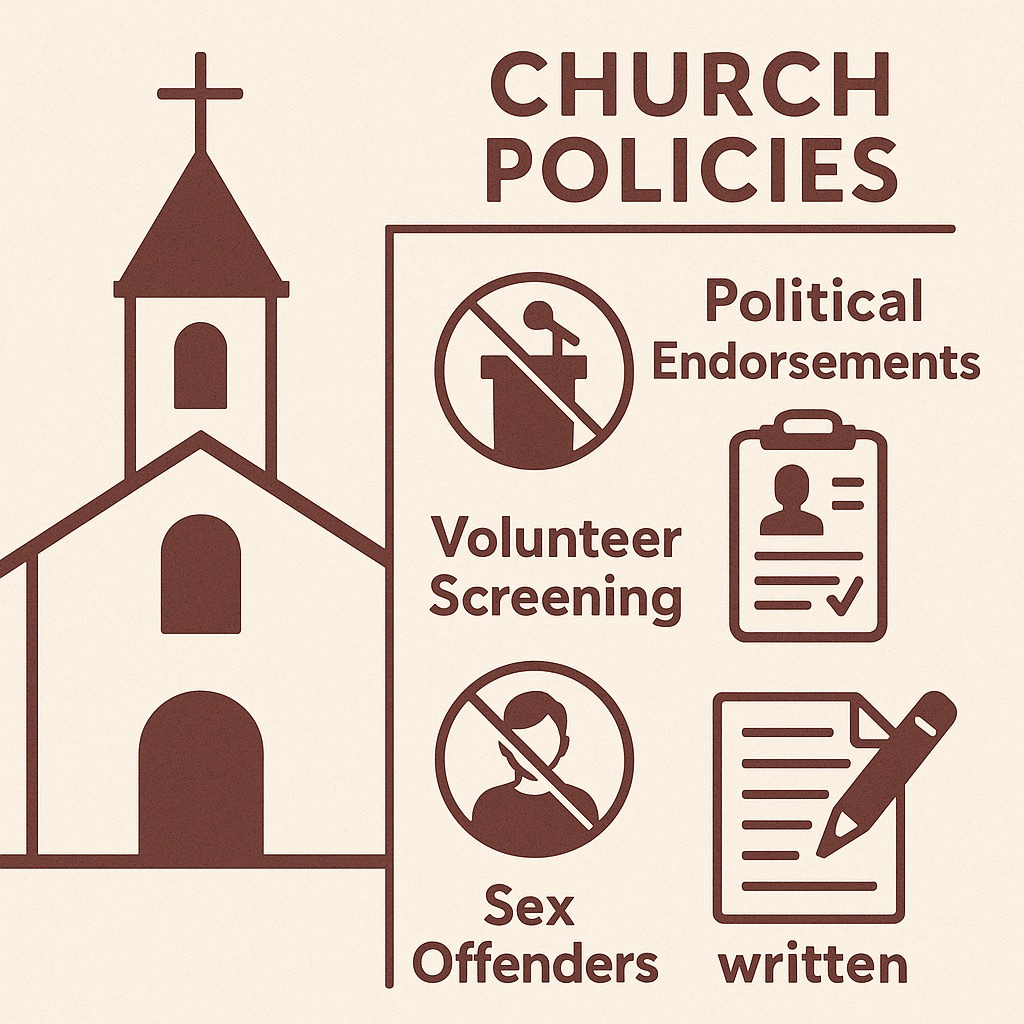Written rules ease pastoral burdens and protect congregations from confusion
A pastor facing a request to endorse a candidate or handle the presence of a known sex offender is caught in the middle of competing pressures. Congregants may expect one response, the law may require another, and personal instincts may pull in yet another direction. Without established policies, the pastor is left to improvise in a charged environment.
Clear written policies shift these difficult decisions away from moments of crisis and into calmer planning sessions. By settling issues in advance, church boards take on the weight of governance, leaving the pastor free to minister rather than to negotiate under pressure. This approach moves the hardest conversations to the front end, where emotions are lower and the focus can remain on protecting both the congregation and its leaders.
Political endorsements provide one example. Federal tax law prohibits churches from endorsing candidates. A written policy that forbids political endorsements from the pulpit protects pastors from pressure while ensuring compliance. When a congregant asks for an endorsement, a pastor can simply point to the existing policy instead of appearing to make a personal decision.
Sex offender attendance policies provide another layer of protection. By establishing clear boundaries—such as supervised attendance or restricted access to children’s areas—churches can both extend pastoral care and ensure safety. A pastor confronted in the moment with a sex offender’s request to attend worship does not need to invent a plan; the policy speaks first.
Volunteer screening procedures work in the same way. When churches codify background checks, reference requirements, and training, a pastor is not left to weigh whether a well-liked member is “safe enough” to serve with children. The rule is already established, easing the burden of personal judgment.
By framing decisions as institutional and rule-based, churches reduce the risk of fractured trust, protect vulnerable people, and preserve pastoral authority. For pastors, the greatest relief is knowing that they are not alone in the moment of conflict: the church has already decided, and the policy provides the answer.
Many congregations are expected to take up these discussions in policy planning meetings ahead of election season and the new volunteer ministry year, making now a natural time to set rules that will prevent future crises.
